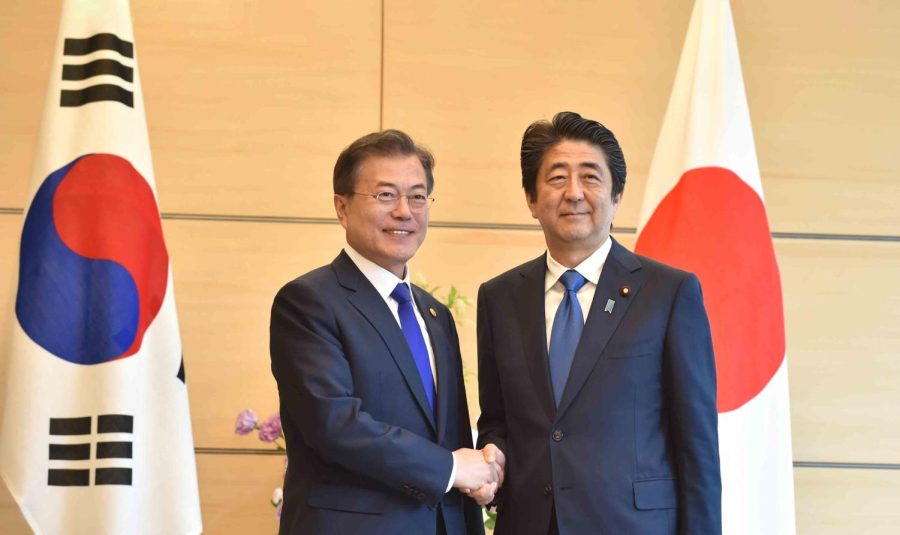South Koreans’ perception of Japan show improvement
Former South Korean president Moon Jae-in shakes hands with Former Japanese prime minister Shinzo Abe. (Source: Getty Images)
On Sept. 1, an annual survey published by the East Asia Institute and Genron NPO, conducted with 1028 Korean citizens and 1000 Japanese citizens, revealed that public perceptions of South Korea and Japan have improved, with this year’s survey marking the largest improvement since the start of the survey in 2013.
Conflict regarding Japanese colonization during World War II, the Liancourt Rocks dispute, and the Japan-Korea trade dispute have caused negative sentiments between citizens, and governments from both countries are unable to solve these conflicts. Even in this year’s survey, only 4.9 percent of South Korean respondents and 13.7 percent of Japanese respondents described Korea and Japan’s relationship as “good”.
“The claiming of Liancourt Rocks from both sides and the inability to reach a diplomatic decision on its ownership was a main issue,” Steven Nave, history teacher, said. “It also goes back to imperialism and how Japan treated Koreans. South Korea never got over it due to Japan refusing to apologize.”
Other results of the survey showed improvement. The number of respondents who described their impressions of the other country as “bad” dropped by 10.4 percent for Korean respondents and 8.5 percent for Japanese respondents. Similarly, the number of respondents who described Korea and Japan’s relationship as “bad” dropped by 16.4 percent for Korean respondents and 12.9 percent for Japanese respondents.
“I think Japan and Korea’s relationship has improved overall.” Emma Kim (11), a Korean citizen, said. “Nowadays, I do not see many people talking about how Japan and Korea’s relationship has worsened as much as there were a few years ago.”
A report also released by Genron NPO cited rising tensions between both countries and China and both countries’ alliance with the US as a major factor in the improvement of sentiments.
“I think the relationship between the two countries has to get better because of issues in East Asia, since they need to be allies against potential threats from China and North Korea,” Mr. Nave said. “However, if both countries do not put effort into resolving conflicts, then there are not going to be any major improvements in their relationship anytime soon.”

Hannah is a senior reporter for Tiger Times Online. She loves drawing, writing narratives, and listening to new genres of music. In her free time, she...

